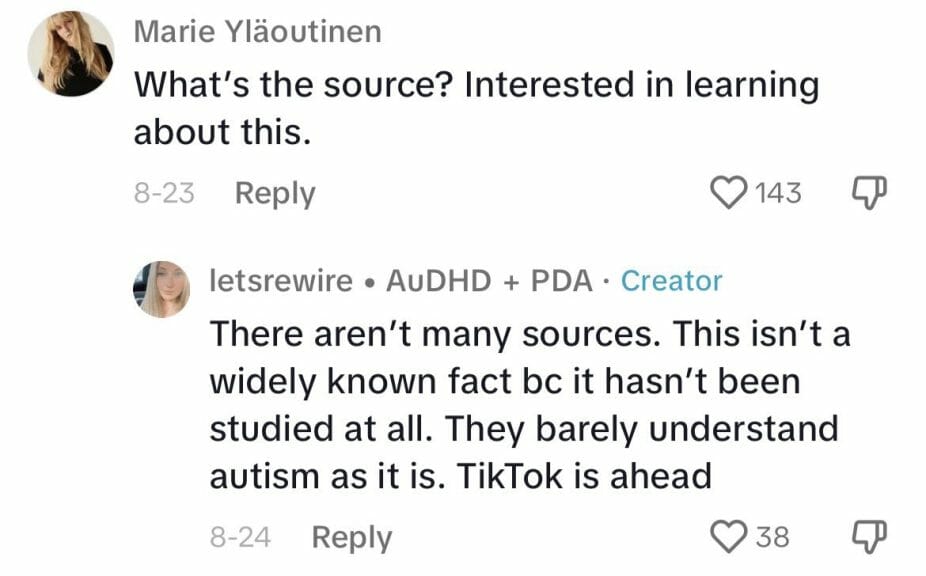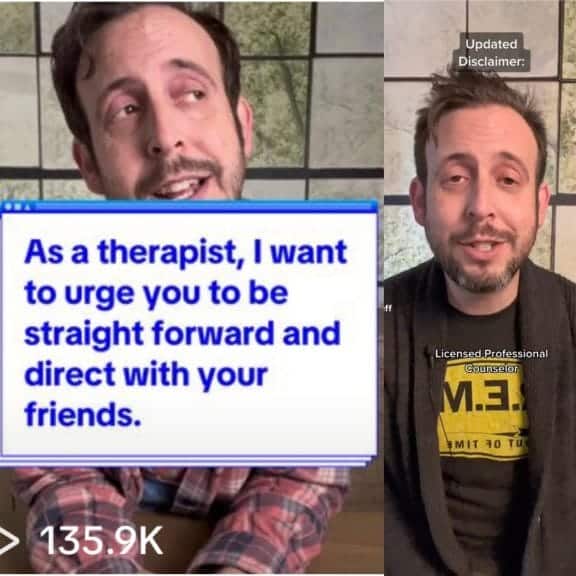TikTok is arguably one of the best apps for Gen Z to interact, seek advice, and learn from one another. Sharing information with such ease means being able to absorb vast amounts of content, and for almost anyone to be an influencer. Because of this, TikTok is known for being a world of misinformation.
Growing up, many of us have now witnessed a shocking amount of people self-diagnosing themselves with disorders based on surface-level symptoms, hearing terms like “my house has to stay clean, I have OCD.” Or “My mood changes fast, I’m bipolar.”
After a mass amount of users downloaded TikTok in 2019, we have seen these phrases casually thrown around, increasing with each scroll. They aren’t just happening out of sheer coincidence but because of the amount of uncertifiable creators giving unsolicited advice.
According to TikTok, you might have ADHD
Many people are misinformed about mental disorders, partly because of how they are depicted in modern media but also because of the rise of anti-intellectualism rhetoric on social media. Long were the days when one would enter a state of panic and visit a psychiatrist for a professional diagnosis. Now one could enter their symptoms into TikTok’s search engine and diagnose themselves based on unproven statements by users online.
A content creator who goes by the name of “letsrewire” is an example of this. In a video, she explains that “neurodivergent people don’t have to use brain power to do basic things like taking showers.” After going viral, the video has reached the hands of psychological professionals who have debunked her claims. Despite the creator being called out for spreading false information, one should be mindful of claims provided on the internet with no proof. This creator has since admitted to having no sources to back her claim, yet there are still individuals reluctant to do actual research.

Above, she states that because “TikTok is ahead,” it is the reason why there are reputable sources to back her claim. TikTok has a predominately younger audience who should always learn to research unproven statements made on the internet.
TikTok Therapists
Therapy is something that should be accessible to all who need it, just as one can access a doctor when they need medical attention. Due to high expenses and lack of resources, it is not something easily accessible. With this in mind, there is a rise of licensed therapists providing services not limited to a specific individual on TikTok. While these may often be driven by good intentions, they could also be deemed very problematic. It is dangerous to give counsel to impressionable minds over the internet with little to no context on the personal matters of others.
Humans are not a monolith; what can apply to one may not apply to all. This includes unsolicited advice on various subjects such as dating, lifestyle, and even mental disabilities. All of these are serious matters, so it is wise to be careful when engaging with content from someone who claims to be an expert. It is easy for anyone to go online and claim to be a therapist, but it’s hard to verify credentials. This also goes for creators who are self-proclaimed “life coaches.”
Lifestyle Coaches and Their Impact

A life coach counsels clients through personal and career challenges. Unlike therapists, there are no formal requirements to become a life coach. There are some pros and cons when looking for life coaches for advice on certain matters. A pro is that they speak from a perspective that comes from life experiences and not scientific textbooks. A con is that their life experiences don’t reflect the vast majority.
Life coaches are in high demand, and their services have influenced the start of many podcasts and discourse. Unfortunately, this means people, including young adults, are paying for their services. Keeping this in mind, it can be hard to differentiate between those genuinely looking to help and those looking to scam.
Like any social media trend, they have ups and downs, and the psychology creators have many of them. To avoid being misled and misdiagnosed, here are a few affordable sources of therapy, according to Healthline:
- Talkspace (For affordable therapy)
- Amwell (Comprehensive Care)














